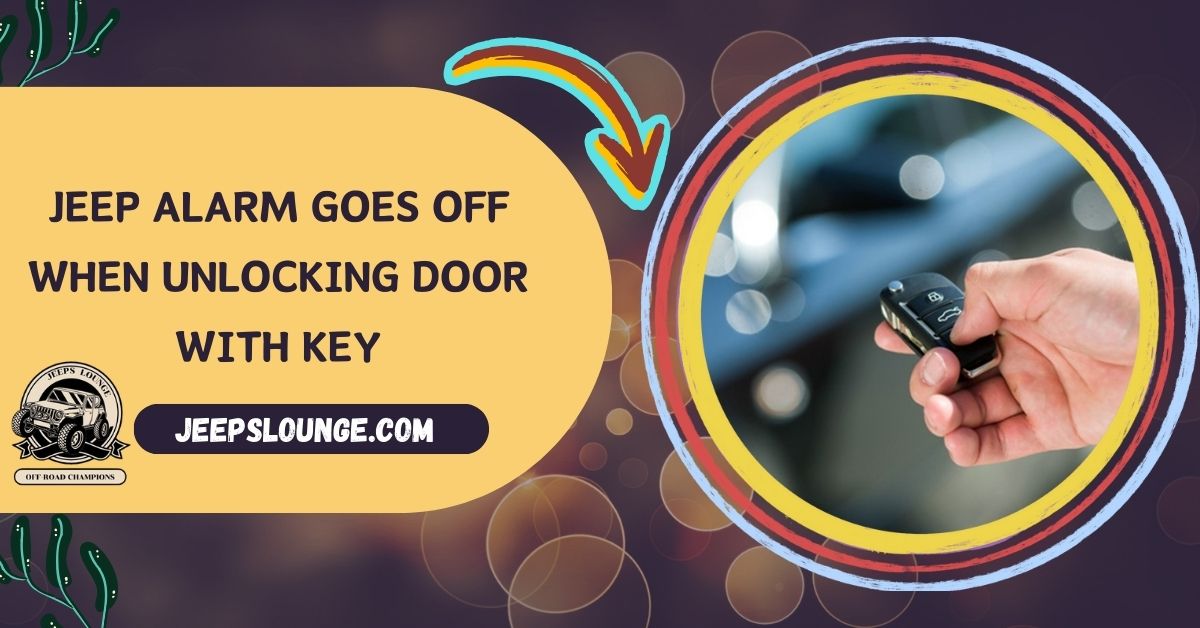You’re ready to embark on a thrilling Jeep adventure, only to encounter a chilling scenario – your brake pedal is stiff as a board, and the engine refuses to turn over. Panic might set in, but take a deep breath before you call for a tow truck. This article is your roadmap to navigating this frustrating situation.
A stiff brake pedal and a non-starting car in your Jeep can signal various issues, some more serious than others. Ignoring such problems, especially those related to brakes, can put your safety and the safety of others in jeopardy. That’s why addressing them promptly is crucial.
But fear not, fellow Jeep enthusiast! This article aims to be your troubleshooting companion, empowering you to understand the potential culprits behind this issue. We’ll delve into the common causes, guide you through diagnostic steps, and offer solutions ranging from DIY fixes to seeking professional help. Additionally, we’ll equip you with essential safety tips to prioritize your well-being throughout the process.
Table of Contents
Under The Hood Suspects: Potential Causes Of Your Jeep’s Brake Pedal Is Stiff And Silent Engine:
The unnerving combination of a stiff brake pedal and a silent engine in your Jeep can stem from various culprits, some lurking under the hood, others hiding in unexpected corners. Let’s dissect the most common suspects:
The Battery Blues:
Dead or Weak Battery: This reigns supreme as the most frequent offender. A depleted battery lacks the juice to crank the engine and power components like the brake booster (if equipped). Check your battery’s age and voltage – anything below 12.4 volts might indicate trouble.
Corroded Terminals: Crusty, white or green buildup on the battery terminals creates resistance, hindering current flow. Cleaning these terminals can sometimes revive a struggling battery.
Loose Connections: Ensure the battery cables are securely fastened to the terminals. Loose connections can mimic a weak battery’s symptoms.
Starter System Struggles:
Faulty Starter Motor: The starter motor might malfunction if the culprit isn’t the battery. Worn brushes, internal damage, or a jammed solenoid can prevent it from engaging the engine.
Faulty Starter Solenoid: This electromagnet acts as a switch, allowing high current to flow to the starter motor. A defective solenoid won’t complete the circuit, leaving your engine silent.
Damaged Wiring: Chewed wires or loose connections between the starter and battery can disrupt the flow of electricity, rendering the starter ineffective.
Brake System Blues:
Frozen Brake Calipers: This scenario, though less common, can cause a stiff pedal. Internal corrosion or seized pistons can lock the brakes in a partially applied state, making the pedal hard to press.
Seized Brake Pads: Rusted or jammed brake pads can bind to the rotors, creating resistance and a stiff pedal, although this usually wouldn’t prevent the engine from starting.
Vacuum Booster Issue (if equipped): Jeeps with vacuum-assisted brakes rely on engine vacuum to amplify pedal pressure. A leak in the vacuum system can make the pedal feel stiff and unresponsive.

Beyond The Usual Suspects:
Ignition Switch Problems: A malfunctioning ignition switch might not signal to engage the starter, leaving your engine silent.
Security System Malfunction: An anti-theft system malfunction can sometimes prevent the engine from starting, even if the battery and starter are healthy.
Rodent Damage: These furry chewers can wreak havoc on electrical wiring, potentially affecting the starter circuit or other critical components.
However, by understanding these common possibilities, you’ll be better equipped to tackle the troubleshooting process in the next section.
Cracking The Code: Troubleshooting Your Jeep’s Stiff Pedal And Silent Engine
Facing a stiff brake pedal and a silent engine in your Jeep is frustrating, but fear not! Remember, safety first – if you’re unsure about any step, seek professional help.
Start With The Battery:
Voltage Check: Grab a multimeter and measure the battery voltage. Anything below 12.4 volts indicates a weak or dead battery, the most common culprit.
Terminal Inspection: Look for corrosion (white or green crust) on the battery terminals. Clean them with a battery terminal cleaner and baking soda paste if necessary.
Connection Check: Ensure the battery cables are securely fastened to the terminals. Tighten loose connections with a wrench.
Jump Start (Caution!): If the battery seems dead and you can access another vehicle and jumper cables, attempt a jump start following safe procedures. Note: Only do this if you’re confident in jump-starting procedures and both batteries are compatible.
Investigate The Starter:
Visual Inspection: Open the hood and locate the starter (usually near the engine block). Look for visible damage, corrosion, or loose connections on the starter and its wiring.
Listening Test: While someone attempts to start the engine, listen for clicking sounds near the starter. Clicking usually indicates a starter issue, either the solenoid or the motor itself.
Check The Brakes:
Stiffness After Engine Off: If the brake pedal feels slightly less stiff after turning off the engine, suspect a brake component issue, like frozen callipers or seized pads. However, this would only partially prevent the engine from starting.

When In Doubt, Seek Help:
Complex repairs like replacing the starter, diagnosing electrical issues, or dealing with frozen callipers are best left to qualified mechanics. They have the expertise and tools to diagnose the problem and perform repairs safely and accurately.
Putting Safety First: Essential Tips For Troubleshooting Your Jeep:
While troubleshooting your Jeep’s stiff brake pedal and silent engine is crucial, prioritizing safety throughout the process is paramount. Here are some essential tips to keep you and your surroundings protected:
Choose Your Battlefield Wisely:
Park on level, stable ground: Avoid inclines or uneven surfaces that could cause your Jeep to roll if the brakes release unexpectedly.
Select a well-lit area: Working in good lighting ensures clear visibility of components and potential hazards.
Turn off the engine and engage the parking brake: This prevents accidental engagement of the starter or unintended movement.
Respect The Electric Current:
Remove jewellery and metal objects: Metal can conduct electricity and increase the risk of shock.
Use insulated tools: Use proper insulation for handling battery terminals and electrical components.
Disconnect the negative battery terminal first: This minimizes the risk of sparks or shorts when working on the electrical system.
Avoid touching exposed wires or components: If you see damaged wires or exposed wiring, seek professional help.
Know When To Call In The Cavalry:
Complex repairs are for the pros: Replacing starters, diagnosing electrical issues, or dealing with frozen callipers require specialized knowledge and tools. Feel free to seek professional help if you need clarification on any step.
If you feel unsafe, stop: Your safety is paramount. If any step feels risky or confusing, don’t push it. Consult a mechanic to ensure your well-being.
Knowledge Is Power, But Limits Exist:
Understand your DIY capabilities: Be honest about your mechanical skills and experience. Only try to attempt repairs within your comfort level.
Research thoroughly: If tackling a DIY repair, research the process carefully, consult your Jeep’s manual, and watch relevant tutorials to ensure you understand each step.
Don’t force it: If something feels stuck or resists, don’t force it. You could damage components or injure yourself. Stop and seek professional assistance.
Combining this safety awareness with the troubleshooting steps outlined previously, you’ll be well-equipped to diagnose the issue and get your Jeep back on the road safely and efficiently.
Additional Resources For Your Jeep’s Journey:
Troubleshooting Guides and Repair Manuals:
- Official Jeep Service Manuals: https://www.mopar.com/en-us/sign-in.html (Select your specific Jeep model and year)
- Haynes Repair Manuals: https://haynes.com/en-gb/ (Offer detailed step-by-step repair guides for various Jeep models)
- Chilton Repair Manuals: https://www.gale.com/c/chilton-library (Provide comprehensive repair information for many Jeep models)
Online Forums And Communities:
- Jeep Forum: https://www.jeepforum.com/ (A large and active community with discussions, troubleshooting tips, and technical advice)
- JK-Forum: https://www.jk-forum.com/ (Dedicated forum for the Jeep Wrangler JK model)
- JL/JT Forum: https://www.jlwranglerforums.com/forum/threads/wrangler-vs-gladiator.96942/ (Forum specifically for the Jeep Wrangler JL and Gladiator JT models)
- <invalid URL removed>: https://www.jeepgarage.org/ (Another popular forum with technical discussions and repair guides)
Remember: When seeking online advice, be cautious and discerning. It’s always best to consult a qualified mechanic for complex repairs or for clarification on any information you find online.
Faqs: Conquering Your Jeep’s Brake Pedal Is Stiff & Silent Engine:
Q. My Jeep’s Battery Seems Fine, But The Brake Pedal Is Stiff – What Else Could Be Wrong?
A: While the battery is often the culprit, other possibilities include frozen brake callipers, seized brake pads (less likely to prevent starting), a vacuum booster issue (if equipped), or ignition switch problems.
Q. I Need To Be More Comfortable Doing Repairs Myself – What Should I Do?
A: It’s completely understandable! Complex repairs like starter replacements or diagnosing electrical issues are best left to qualified mechanics. They have the expertise and tools for safe and accurate repairs. Feel free to seek professional help to ensure safety and a proper fix.
Q. How Can I Prevent This From Happening Again?
A: Regular maintenance is critical! Regularly check your battery health, brake system components, and electrical connections for signs of wear or damage. Addressing minor issues promptly can prevent more significant problems down the road.
5. What Online Forums Or Communities Would You Recommend For Jeep Troubleshooting?
A: Several active Jeep forums and communities offer valuable support and advice. Popular options include Jeep Forum, JK-Forum, JL/JT Forum, and Jeep Garage. Remember to be discerning when seeking online advice, and consult a mechanic for complex issues.
Q. What If I Get Stranded With This Problem On The Road?
A: Having an emergency roadside assistance plan can be a lifesaver. Consider AAA, National Roadside Assistance, or your Jeep dealership’s program for peace of mind on your adventures.
Wrapping Up: Conquering Your Jeep’s Stiff Pedal And Silent Engine
By following the outlined troubleshooting steps, prioritizing safety at every turn, and utilizing the provided resources, you’ll be well on your way to identifying the cause and getting your Jeep back to roaring and rolling. Additionally, don’t hesitate to seek professional help if necessary – their expertise and tools can ensure an accurate diagnosis and proper repair.




